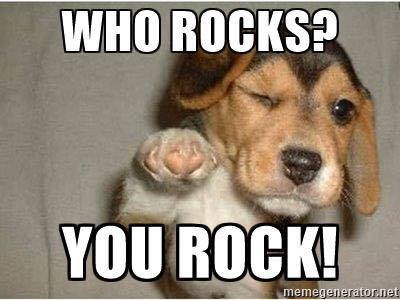LODI H. S. Debate Society
Background - Why Study Debate?
Debate involves the clash or competition of ideas and evidence and takes many forms. It may be at a community or business meeting, on the editorial pages of the newspaper, in a court of law, on the floor of Congress, or around the dinner table. In each case, the debate involves a clash of ideas and information. The structure of such debates, however, varies considerably. The formal court room setting produces a different kind of debate than the informal dinner table argument. Debate, whether structured or unstructured, is a powerful tool for decision making.
Debate, in general, and competitive debate, in particular, is a challenging activity with full range of benefits to those participating.
Oh, yeah, and it's fun, too.
Many of the nation's top lawyers, business executives, doctors, engineers, and elected leaders were involved in debate and for good reason. Simply put, debate-related skills help one get ahead and stay there. The power to persuade is highly respected and there is no better way to master this art than through debate.
http://idebate.org/view/top_100_debates#main-menu
Debate involves the clash or competition of ideas and evidence and takes many forms. It may be at a community or business meeting, on the editorial pages of the newspaper, in a court of law, on the floor of Congress, or around the dinner table. In each case, the debate involves a clash of ideas and information. The structure of such debates, however, varies considerably. The formal court room setting produces a different kind of debate than the informal dinner table argument. Debate, whether structured or unstructured, is a powerful tool for decision making.
Debate, in general, and competitive debate, in particular, is a challenging activity with full range of benefits to those participating.
- Public Speaking Skills: Most people naturally avoid public speaking - debate provides a nonthreatening environment to practice these skills so that down the road when you're called on to speak in college or on the job, you'll have the skills necessary to do a great job. This increases your chances of doing well in important interviews for jobs or scholarships.
- Analytical Skills: The ability to critically analyze a problem and propose workable solutions is invaluable. This is a skill that debate best teaches and high-level business people and professionals possess.
- Research Skills: From traditional library research to the Internet, debate teaches you to become a world-class researcher. Ask any college student and he or she will tell you how valuable that is.
- Listening & Note taking Skills: Debate requires that you become a careful listener and good note taker. This helps you get better grades and learn better.
- Teamwork Skills: Very few careers require you to work alone. Learning to work with a debate partner develops collaborative skills that benefit you today and in the future.
Oh, yeah, and it's fun, too.
- For every person the experience is a little different, but generally the thrill of competition and the camaraderie of teammates make debate fun.
Many of the nation's top lawyers, business executives, doctors, engineers, and elected leaders were involved in debate and for good reason. Simply put, debate-related skills help one get ahead and stay there. The power to persuade is highly respected and there is no better way to master this art than through debate.
http://idebate.org/view/top_100_debates#main-menu

